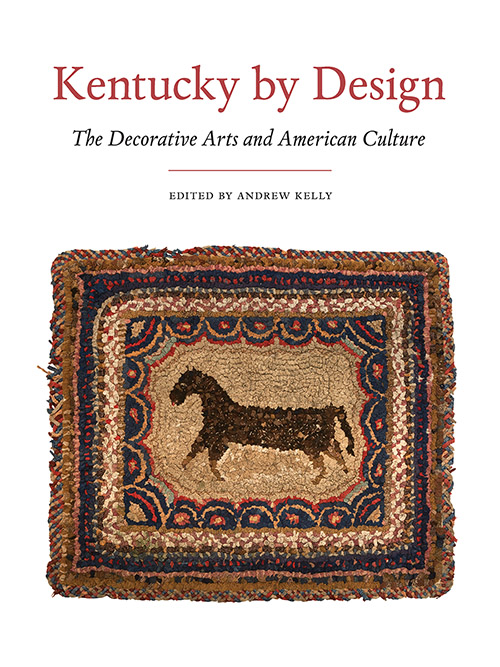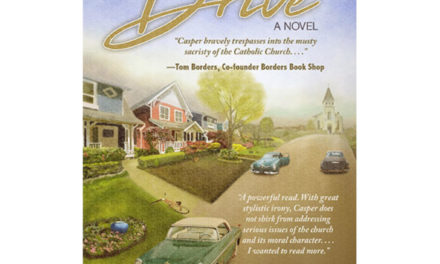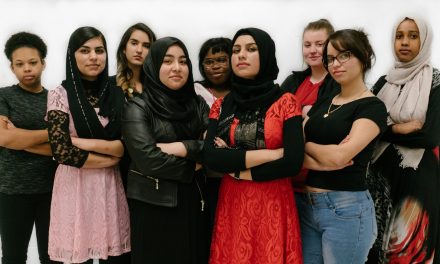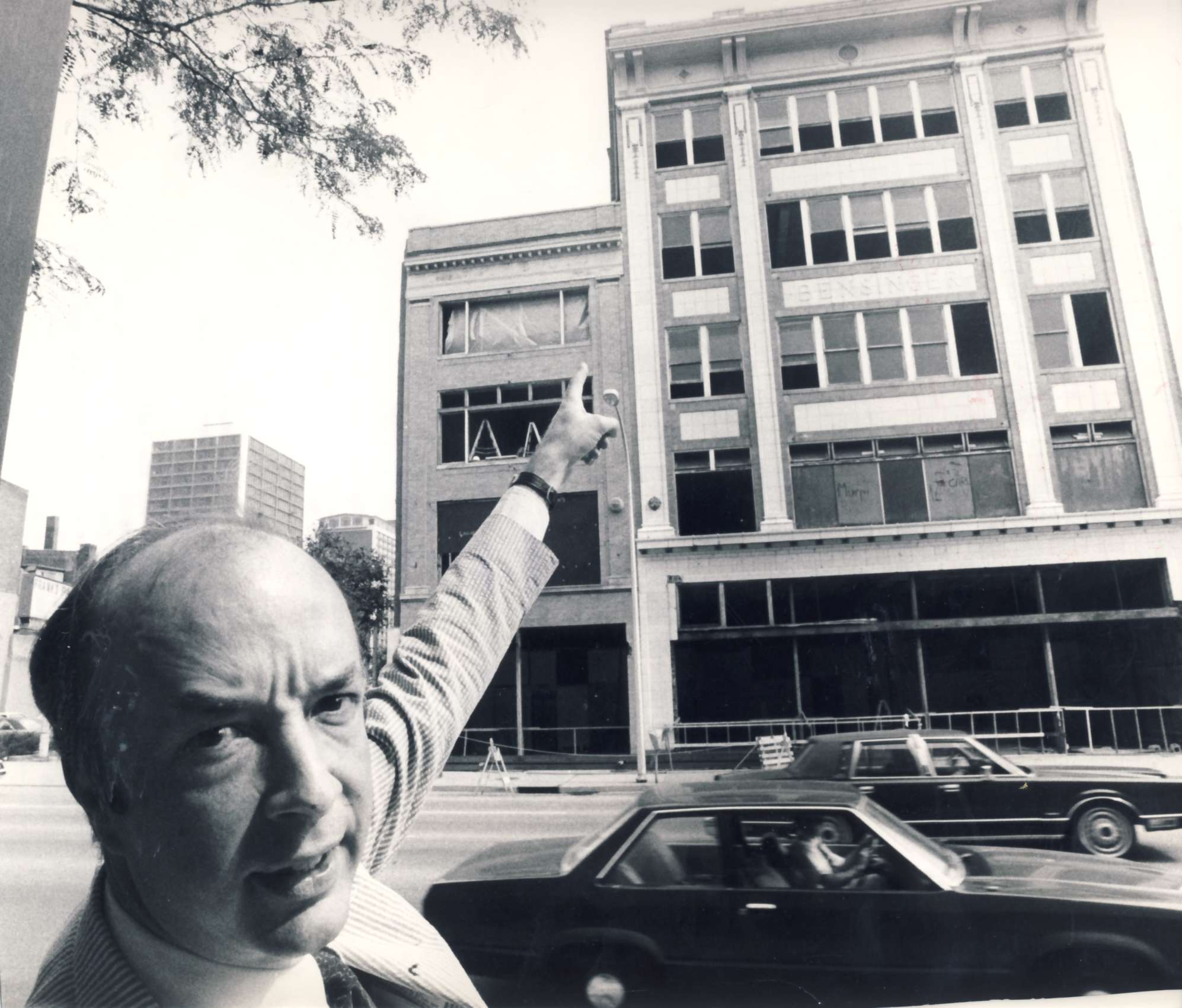Photo: hannahldrake.com
Love, Revolution & Lemonade: Poetry, Prose & Passion
Hannah L. Drake
Paperback, 137 pages
Drake Publishing
$15.00
Review by Keith Waits
Entire contents are copyright © 2019 by Keith Waits. All rights reserved.
What business do I have writing a review of a new book by Hannah L Drake? The writings in Love, Revolution, and Lemonade comprise such a personal, revelatory body of work, as one would expect from this noted Louisville poet and activist; so on what level can this pushing 60-year-old White man expect to identify with this African American Woman notorious for attacking White privilege and assumption where it lives?
When I put the question to Hannah Drake, her response was to challenge me. That also seems highly characteristic for a writer who is inspirational in the best sense, which is to say she never thinks you should settle for anything less than the best you have to give. Often her voice seems directed toward herself at an early age: young Black girls who are struggling with broken families, poverty, sexual abuse, and all other manner of obstacles to plain old survival. Ms. Drake is fearless in sharing her own autobiography in essays like “The Greatest Man I Never Knew” in which she details the troubled yet redemptive story of her relationship with her father and reclaims the clichés of the abandonment narrative with nuance and complexity.
“For Colored Girls Who Considered Suicide When Lemonade Is Enuf “also points to redemption, the kind achieved through empowerment enabled by a mega celebrity’s innovative career. Even if we are not in Beyonce’s key demographic, the line about having ”…loved completely and recklessly and still found ourselves broken and alone in a Love drought” has resonance across all the barriers and hits home.
The words conjure up specific places and moods. The reader is made to feel like they are walking through somebody else’s dreams, able to comprehend the details of light and texture without the benefit of overly descriptive prose. There is prose here, but it is lean and economical and unburdened by romantic illusion.
All of which is a person exploring their identity with great candor, using confession as a tool for discovering truths that are always elusive, always one step ahead, just out of sight around the next corner. That is where I find one connection. Would that I had the courage to be half as revealing as Hannah Drake. But I also never experienced the depths of pain and suffering that she lays out on these pages.
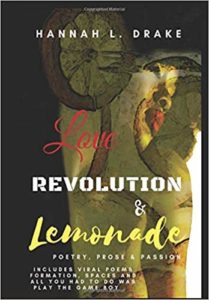 Yet whatever her past troubles, Drake is now triumphant, and there is much more of that tone in the book. While she mourns the past with feeling, she celebrates the present moment with an even greater passion. One of the ways she does this is to write about sex in refreshing detail stripped of its pornographic aspect by the bracing, honest demeanor she brings to bear. In the poem, “I Taught Him That” she traces the connective significance of sexual expertise, tenderness, and cooking as a prelude to the next lover, capturing a thumbnail of the deep and abiding investment we make in love only to lose it with a suddenness that unnerves us. We have all suffered the imaginary nightmare of picturing our lover in flagrante delicto with another, but Drake articulates what exactly beyond memory was robbed from us.
Yet whatever her past troubles, Drake is now triumphant, and there is much more of that tone in the book. While she mourns the past with feeling, she celebrates the present moment with an even greater passion. One of the ways she does this is to write about sex in refreshing detail stripped of its pornographic aspect by the bracing, honest demeanor she brings to bear. In the poem, “I Taught Him That” she traces the connective significance of sexual expertise, tenderness, and cooking as a prelude to the next lover, capturing a thumbnail of the deep and abiding investment we make in love only to lose it with a suddenness that unnerves us. We have all suffered the imaginary nightmare of picturing our lover in flagrante delicto with another, but Drake articulates what exactly beyond memory was robbed from us.
In recent years, some of Drake’s work has received national recognition. The poem “Formation” is included here, cataloging Black Civil Rights history through a motif of military-like regulation, the rhymes of the language building the imagery into an evangelical fervor, and “Spaces”, which examines the distinction in personal space between White people and Black people. Both are bombastic calls to action, schematics for how to live your daily lives by giving no ground.
“All You Had To Do Was Play That Game, Boy” was tweeted 2.2 million times after the subject, former NFL quarterback Colin Kaepernick, spotlighted it in his social media. It is unusual in that Drake writes from the perspective of the White Patriarchy, albeit with sarcasm dripping like blood from an open wound:
Thought you knew we don’t trust Negroes to be the quarterback anyway, boy. We did you a favor, boy. How dare you turn your back on us, boy? If you are kneeling, it will be before us, boy.
Conversely, a few pages later, she accuses that White Patriarchy:
Why are you angry, White man?
Aren’t the laws written in your favor?
Didn’t you write the documents that govern this nation?
Before exposing the truth:
It is not anger you display
It is fear.
Which firmly places Drake in the company of important writers like Ta-Nehisi Coates in the fresh assessment that the repression in African American history survived the Civil Rights movement to a greater degree than most Americans were willing to believe.
So what is our responsibility? Not in this volume, but on her blog, Drake proclaims, “Black Women are not here to save you!” Yet my mind was expanding as I read her words, and I suspect (and hope) that such enlightenment will continue to grow. Far from abdicating her authority and influence, Hannah Drake offers the reader a type of salvation by delivering a wealth of provocation and instruction intended to force us out of our complacency.
Houston…we have a problem
You see, I am not writing to entertain you
I am on assignment to shake a nation from its slumber.
And now is the time for you to wake up.
You no longer have the choice or luxury to remain silent.
Those lines, from “Compassion Rising”, are blunt. Drake writes with far more subtlety and grace in other places in Love, Revolution, & Lemonade, but here she refuses to let us off the hook.
Keith Waits is a native of Louisville who works at Louisville Visual Art during the days, including being the host of LVA’s Artebella On The Radio on WXOX 97.1 FM / ARTxFM.com, but spends most of his evenings indulging his taste for theatre, music and visual arts. His work has appeared in LEO Weekly, Pure Uncut Candy, TheatreLouisville, and Louisville Mojo. He is now Managing Editor for Arts-Louisville.com.


